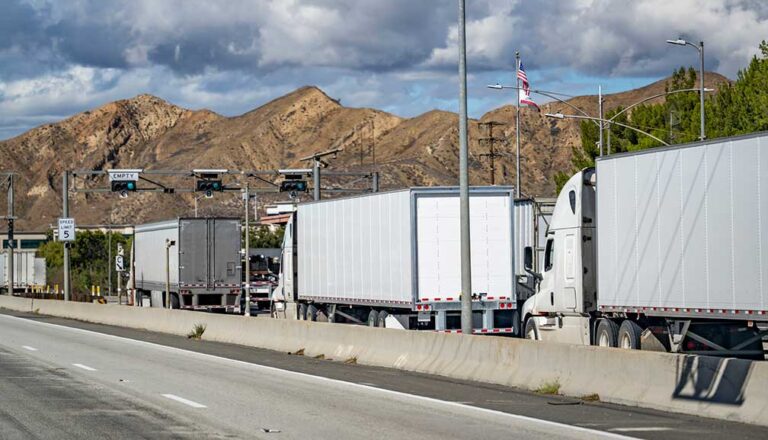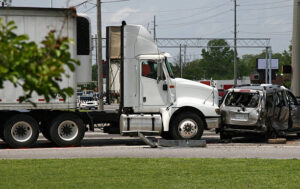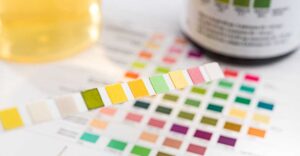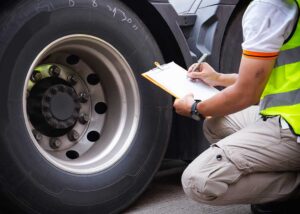Each year, the Commercial Vehicle Safety Alliance (CVSA) announces the focus areas for its annual International Roadcheck inspection event. This year, one of those focus areas will be checking drivers and vehicles for controlled substances and alcohol. In a first for CVSA, part of that check will be conducting a query in the Federal Motor Carrier Safety Administration’s Drug and Alcohol Clearinghouse (DACH) database.
The 2024 International Roadcheck will be conducted over a three-day period, Tuesday-Thursday, May 14-16. While it may seem the best way to survive the annual event is to avoid using or possessing prohibited substances during the event, it’s actually the DACH query that will be problematic for some drivers.
The DACH was created to better track and enforce the U.S. Department of Transportation’s (DOT) drug and alcohol testing regulations. In the “old days,” a driver who tested positive for controlled substances had a few options. Back then, the people involved in the testing process didn’t communicate with state licensing agencies, so CDL suspensions that were supposed to happen often did not. Provisions for treatment and follow-up testing — required before the driver could get behind the wheel again — were often ignored. Drivers who wanted to remain in trucking simply found another job, hopefully with a carrier that was lax in checking with former employers. Owner-operators who were part of a drug and alcohol consortium could simply switch to a new one that had no record of a positive test. The rules were not terribly difficult to circumnavigate.
The DACH was created to tighten up enforcement of the rules. Carriers and consortiums are required to report positive results to the DACH and to query the database for every new driver they hire. Drivers are required to give their permission for the DACH to give out their results. Individual states are required to suspend CDLs for drivers who have positive results, at least until they complete a return-to-duty (RTD) process. It became much more difficult to simply find another job and bypass the process.
Then, a funny thing happened. Instead of going through the required RTD process, many drivers who tested positive for drugs and alcohol chose to stop driving instead. In the four years since the DACH went live, 226,598 drivers have had at least one drug or alcohol-related violation. Of those drivers, 120,676 (53%) did not even start the RTD process. Others started the process but dropped out before completing it. As of Dec. 31, 2023, a total of 158,330 (70%) of drivers with a positive drug or alcohol test are prohibited from performing safety-sensitive functions.
These are the drivers the inspectors for the 2024 CVSA International Roadcheck will be looking for, along with any drivers who are currently under the influence of or in possession of prohibited substances. The CVSA’s guidance for the event specifies that inspectors will be observing drivers for signs of alcohol or controlled substance use and/or impairment and that they will examine the cab and trailer for alcohol or controlled substances. Whether this examination includes a search of sleeper areas or the opening of trailers will likely depend on the jurisdiction in which the inspection is performed (and possibly the cooperation of the driver).
The inspection will include a query of the DACH database to determine if the driver is in a prohibited status. If the driver is found to be in a prohibited status, he or she will be placed out of service.
Drivers do not need to be registered with the DACH inspectors to look for information in the database. Registering in the database does provide the driver with some advantages, however. One advantage is that drivers can view information in their own files. Another is that the driver will be notified by email of any changes to the file, such as a positive drug screen. Registering in the DACH also gives the driver more access to the information in the database. It’s a good idea for every driver to check their DACH record annually; in the month before an event like the International Roadcheck, it’s even more important.
To register, simply go to the DACH website and click on the “register” button. A checklist of what is needed to complete registration can be found here.
In many cases, a “limited” query will be sufficient to make sure a driver is not in a prohibited status. Information about negative testing is not entered into the database, so if a driver has no infractions, their DACH file will be empty. If the driver changes employers or joins a new consortium, or if the limited query returns information in the driver’s file, a full query will be conducted to obtain full details. For an employer to conduct a full query, the driver must give consent electronically through the DACH itself; drivers must be registered in order to do so.
CVSA information for drivers for the upcoming International Roadcheck specifies some common-sense guidance. They should not possess or be under the influence of alcohol or controlled substances while on duty, and they should not consume alcohol within four hours of coming on duty. Drivers who have had a positive test for alcohol or controlled substances will benefit from making sure they know exactly what is in their file before the inspection. Drivers who have tested positive and have not undergone the RTD process have an opportunity to get the process started before being placed out of service during an inspection.
Drivers who would like more information about the 2024 Internation Roadcheck can download a brochure here.
Cliff Abbott is an experienced commercial vehicle driver and owner-operator who still holds a CDL in his home state of Alabama. In nearly 40 years in trucking, he’s been an instructor and trainer and has managed safety and recruiting operations for several carriers. Having never lost his love of the road, Cliff has written a book and hundreds of songs and has been writing for The Trucker for more than a decade.








